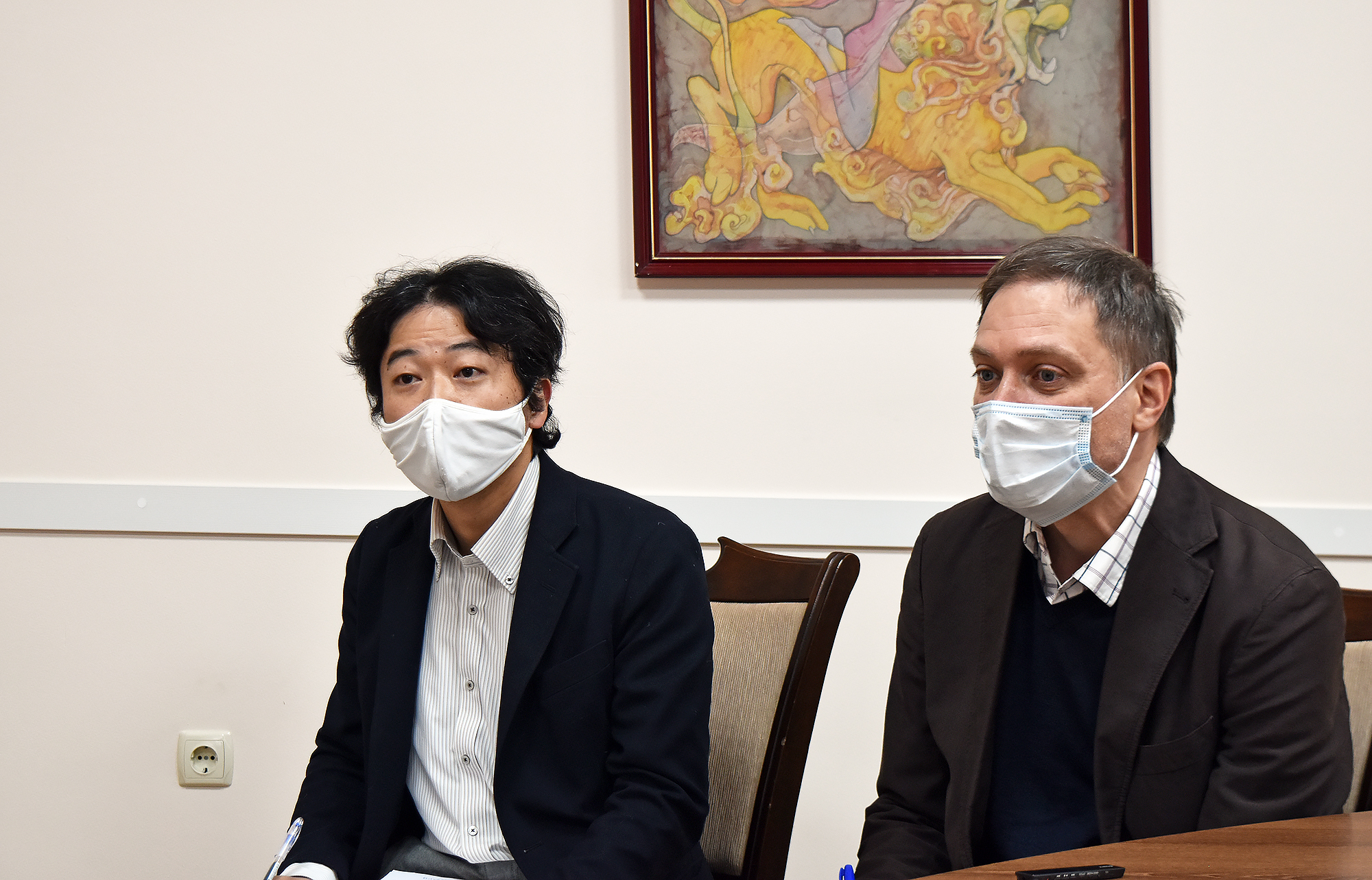PMR Foreign Minister Vitaly Ignatiev gave an interview to Norisada Takafumi, the correspondent of the Hokkaido Shimbun newspaper. The journalist was interested in a wide range of issues related to the Moldovan-Pridnestrovian negotiation process, cooperation of Pridnestrovie with the Russian Federation and other countries, as well as the situation resulting from the banking, financial and vehicle blockade of Pridnestrovie.
In terms of the Pridnestrovie-Moldova relations settlement, Vitaly Ignatiev stated that the negotiations are currently in a state of decline. The critical point is that the systemic deterioration of the situation in the negotiation process began 18 to 24 months before the current leadership of the Republic of Moldova took power. The Minister recalled the deliberate non-fulfillment by Chisinau of a comprehensive package of agreements with Pridnestrovie signed in 2017-2018, and the failure of the political representative of the Republic of Moldova to adopt the final statement of the Bratislava meeting in the 5+2 format in late 2019.
“Today, the Moldovan side is not involved in any activity which requires decision-making and a responsible approach. Chisinau intentionally delays the appointment of its authorized representative in the negotiation process, but uses every opportunity to make provocative statements regarding Pridnestrovie. For us, such an approach is a way to destroy the negotiation mechanism. Chisinau is not doing this explicitly, but is refusing a meaningful dialogue citing technical circumstances,” the foreign minister said.
Responding to the correspondent’s question about Pridnestrovians’ attitude to the so-called “reintegration” policy implemented by Moldova, Vitaly Ignatiev outlined in detail the political, legal and referendum basis for the independence of the Pridnestrovian Moldavian Republic. He noted that the Declaration of Sovereignty of June 23, 1990 adopted by the Parliament of the Moldovan SSR reinforced the legitimate grounds for approving the statehood of Moldova and Pridnestrovie as the MSSR’s two equal legal successors that had existed separately before.
“Pridnestrovie has never been part of Bessarabia or present-day Moldova. Consequently, if the supreme legislative body of Moldova recognized the Moldovan Soviet Union Republic as illegal, then there is no and cannot be any reason for “reunifying” the unity that had never been in place. The popular thesis about “reintegration” is of a phantom nature. The sooner the international community stops retransmitting it, the sooner Chisinau will abandon its excessive unfeasible requests and will ripe for a realistic scenario of conflict resolution. One of such options can be a comprehensive peace, friendship and cooperation agreement between the two republics,” Vitaly Ignatiev summed up.
Answering the question about the role of Russia, the Pridnestrovian diplomat highlighted practical aspects testifying that the Russian Federation is a key participant in the peacekeeping operation on the Dniester, a reliable and responsible mediator in the settlement process. “In light of the current protracted crisis in the dialogue, it would perhaps be appropriate if Russia offered its own platform for holding meetings in the 5+2 format, since the OSCE has failed with its task of convening and organizing the next round of meetings for the second consecutive year. And all this is taking place amid the steadily deteriorating situation. Earlier on, when the dialogue was in its intensive stage, Russia’s assistance was of great practical importance, as, for example, during the dismantling of the off-the-ground emergency cable car (funicular) in Rybnitsa and Rezina,” the Minister said.
Referring to the current state of relations with Ukraine, the head of the Foreign Ministry stressed that Pridnestrovie is closely linked with its eastern neighbor by historical, trade, economic, cultural and humanitarian relations, which will basically persist, despite the fluctuations in the political environment. Ukraine is one of the three official mediators in the international negotiation process, its military observers have been participating in the peacekeeping operation side-by-side with Russian, Pridnestrovian and Moldovan peacekeepers for many years, and this experience can be called unique and constructive without exaggeration.
“At the same time, it should be recognized that Kiev’s extra-responsiveness to Chisinau’s political ambitions with regard to Pridnestrovie creates objective difficulties for settlement. Moreover, it complicates an already difficult dialogue, forcing the residents of Pridnestrovie - including almost one hundred thousand Ukrainian citizens permanently residing in our republic - to face restrictions and hardships. The ban on entry into the Ukrainian territory of all categories of Pridnestrovian vehicles, including ambulances, introduced from the first of September is a good example. This is largely an emotional decision, but we continue the dialogue with our Ukrainian colleagues. We hope that we can convince them to act more constructively. People should not become hostage to political ambitions,” the PMR Foreign Minister concluded.









